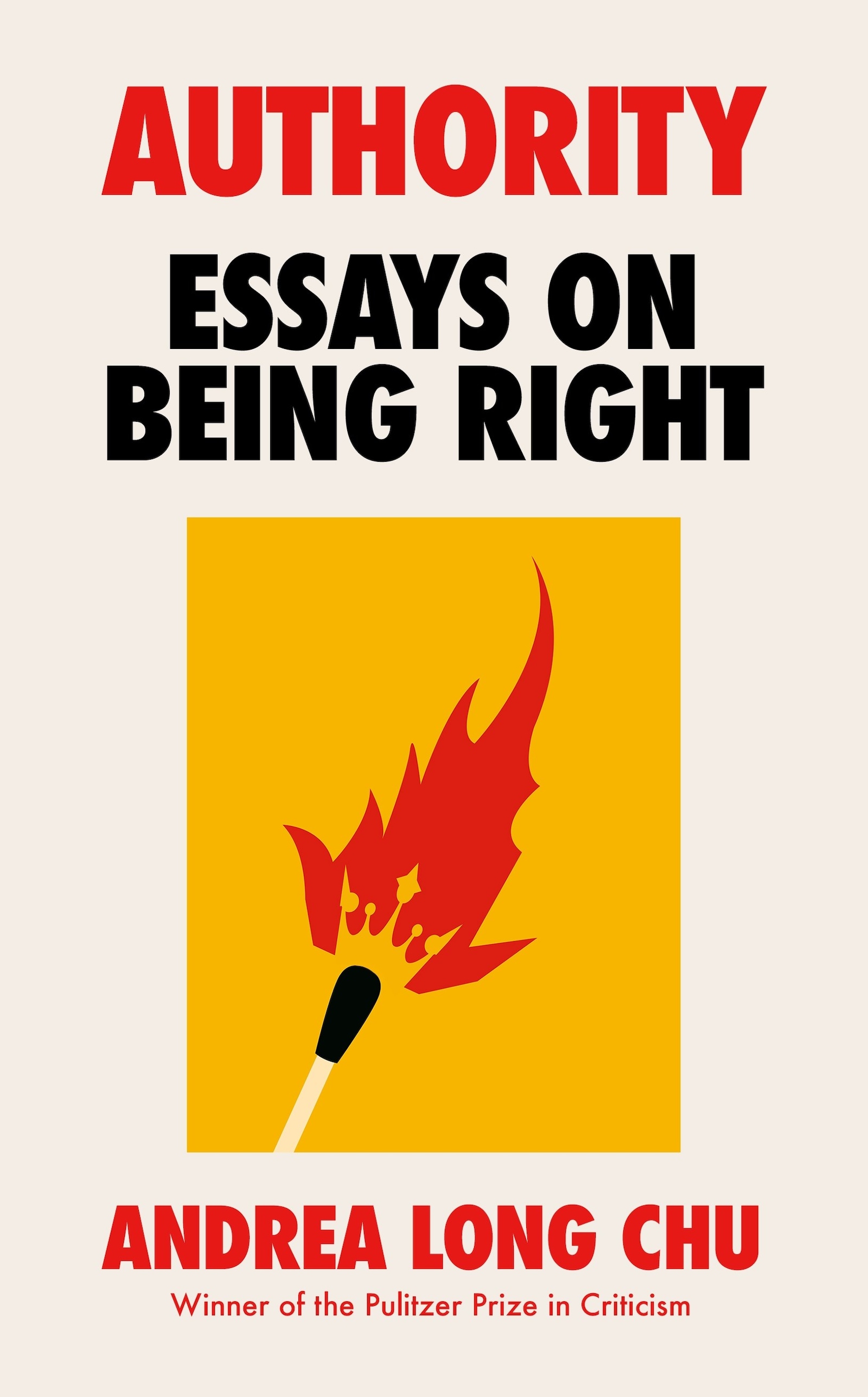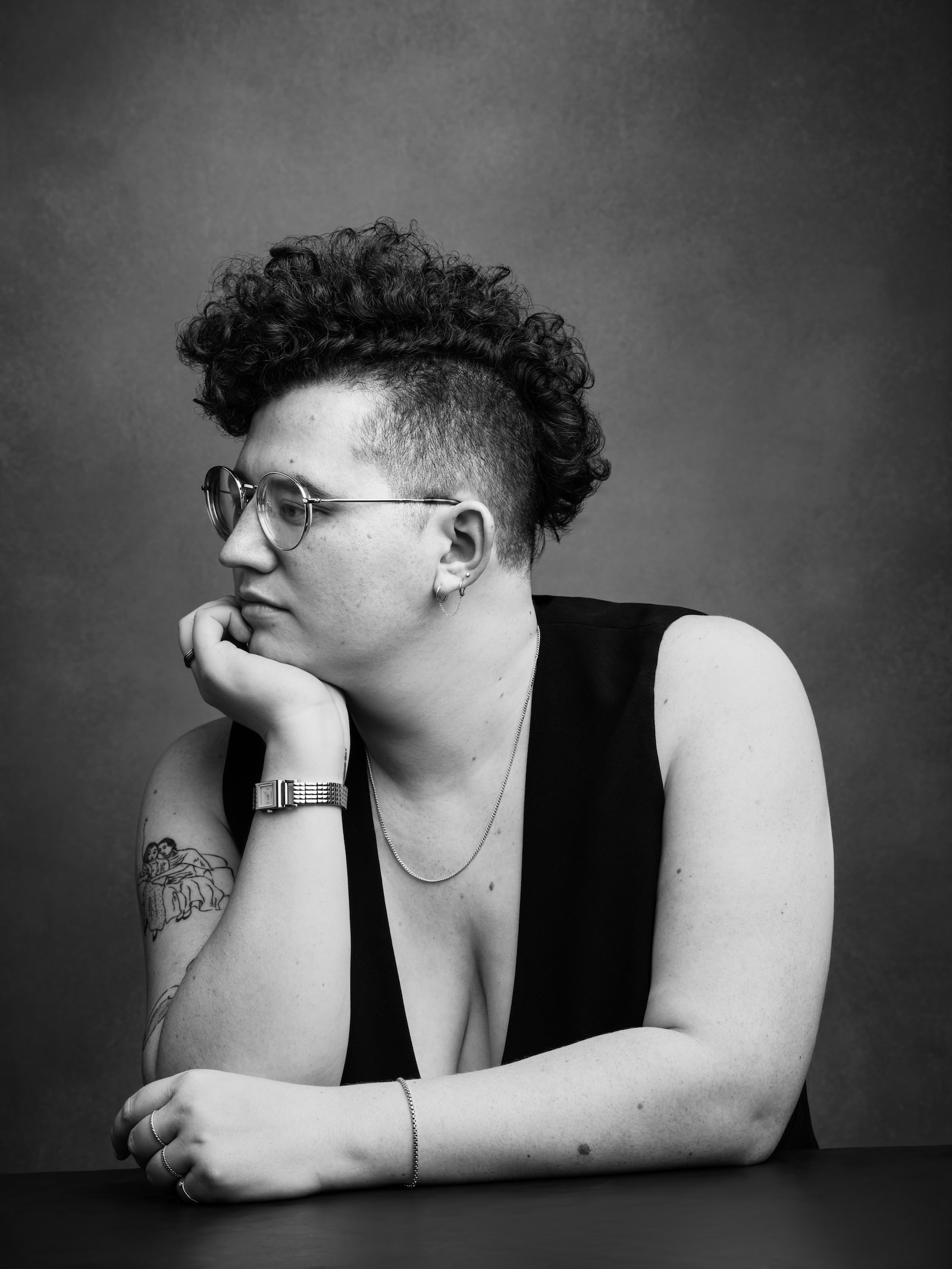Andrea Long Chu may be one of the most fearsome figures in contemporary criticism. I was nervous to talk to her: the New York Magazine columnist and Pulitzer Prize-winning critic is open about her fondness for “cruelty”, and has become infamous for skewering the canonised. This includes lauded literary darlings like Maggie Nelson (“boring”), Ocean Vuong (“illegible”) and Hanya Yanagihara (“sinister”). She also has a particular disdain for glib, “far centre” liberals and entitled Gen X-ers. In her enjoyably savage review of Bret Easton Ellis’s 2019 memoir, White, she dismissed him as a “whining, bland sexist” who is unable to tell the difference between criticism and oppression. “At some point,” she wrote, “one must ask if a man who sees Nineteen Eighty-Four all around him is really just stuck in the 80s.”
These are all wildly unfair reductions of her work, of course. If Chu is known for anything, it’s her diligence – each piece of criticism is meticulously constructed, backed by exhaustive (and often very personal) research. Part of the pleasure of reading Chu is that, despite her galaxy brain intelligence, you never feel spoken down to. She’s keenly aware of her own subjectivity, and many of her essays feel like a meta-exploration of criticism itself: what it’s for, who it serves, and the critic’s shifting role in the cultural landscape. Even her cruelty comes from a place of respect. “Viciousness is the attack dog who hasn’t eaten in three days. Cruelty is the person calmly holding the leash,” she writes in her new book Authority: Essays on Being Right. For Chu, this cruelty is precise, controlled and earned; it means the work mattered enough to wrestle with.
In Authority, Chu gathers select pieces of work from 2018 to 2024. Alongside her sharp dissections of literature, theatre, TV and video games are the deeply personal breakout pieces that first made her name: On Liking Women, which reframes gender transition as a matter of desire rather than identity, and China Brain, a candid account of her experience with depression. Read together, they reveal a critic who brings the same precision to the intimate as to the cultural, and whose edge has only sharpened with time (though thankfully, in conversation, that edge is non-existent). “I’m truly harmless,” she insists, speaking to me over Zoom the week the book lands in the UK.

Dominique Sisley: You‘ve established a reputation for being a ‘poison pen’ critic. Do you feel like it is at odds with who you are in real life?
Andrea Long Chu: I’m polite to a fault, interpersonally, and generally amenable. I’m very conflict-averse. I don’t mind the reputation because I don’t mind people being a little intimidated by me. I mean, I feel generally intimidated by social interactions, so it can end up putting us on even playing field. When I’m interacting with people who have no reason to know who I am, I always feel like I’m on the back foot. I have come to rely a little bit on the armour of whatever fame I have. But no, the aggression is, for the most part, in the work. In real life, I think I’m a big softy.
DS: Have you always been a conflict-averse person? At what point in your life did you realise that there was a critic inside you?
ALC: It is partly a result of the conflict aversion. I needed to find an outlet for it. I have memories from college; we had our token conservative columnist in the student paper – a sort of young Republican, Federalist Society asshole – and he would write things that were intended to be controversial. Maybe I was taking the bait, but I would leave increasingly long comments on those columns, to the point where I intentionally budgeted time for them. I would wake up as soon as his columns came out and write a whole short essay response, which other people then read. So I sort of gave myself a column at the paper.
I’m sure the [critical] impulse comes from childhood, and was supercharged by the college environment. I need that kind of negativity in my life. Part of what being conflict-averse on a social level means is perceiving conflict, right? A risk-taking position does not actually have to evaluate risk. Whereas being conflict-averse means studying my mother’s expression for anything that could possibly be making her, or anyone else, unhappy. It’s not like it guarantees critical thinking skills, but there’s probably something there, in learning to figure out what other people aren’t saying.
“I’m sure the [critical] impulse comes from childhood, and was supercharged by the college environment. I need that kind of negativity in my life” – Andrea Long Chu
DS: In Authority, section two feels like a real tonal shift. A lot of those pre-pandemic essays are so personal and vulnerable, like China Brain and On Liking Women. What was it like going back to that work today? In some of your postscripts, you seem to be more hardened ...
ALC: The personal work is difficult, just because time has passed. But I would never edit essays like that. I would prefer to leave them as they are and treat them as artefacts. These days, I try to avoid writing personal things, in part, because I know that I have been taken advantage of before and because I don't want to feed any prurient interest.
I don’t think I would write On Liking Women today, and that’s not because I’ve lost my nerve. Those were things that I could write because I felt relatively marginal and alone, and that’s simply not true anymore. If I’m going to write about personal things now, I think I have to be more intentional. Some of that early work is very reactive. It’s just my needing to process things that I hadn’t been able to process at all on my own. I think [those pieces are] pretty intellectually integrated, but there is still an aspect of wildness that I don’t have the same relationship to anymore.
DS: You like to get personal in your criticism – you’ll look at an author’s work and also at what they’ve said or done outside of it. Is there an ethical line you won’t cross? Have you ever held back, or looked back at something you’ve written and thought, ‘That was too personal, too much?’ Apart from your piece on Jill Soloway’s memoir, which you acknowledged was too vicious.
ALC: I might have questions about certain moments, but you know, for the most part, these are pieces about famous, successful people. At New York [Magazine], we fact-check. And there are things that I know, in some cases, cannot pass, that might be perceived as under the belt. Yes, there is a responsibility. And in my case, if and when my stature increases, it will continue to limit the pool of people that I can subject to that kind of scrutiny, ethically. I just had this piece about Thomas Chatterton Williams come out, and a few people were like, ‘Well, this is almost punching down at this point’. I don’t think that’s really true; I don’t think I can punch down at anyone who got a six-figure [book deal]. But I think I will have to be more judicious. Or I could totally plateau status-wise; I can just stay right here in terms of what’s punching up and punching down.
“I will never have the standing of the most popular novelists, right? I mean, that’s just a fact about literary consumption. There will always be whales bigger than the ship” – Andrea Long Chu
DS: If punching down becomes harder to avoid as you get more successful, does that create a moral quandary for you? And do your politics as a leftist make that tension even sharper?
ALC: Well, it does sort of ensure that I will always be in a political minority, which leaves several avenues open for punching. But I will never have the standing of the most popular novelists, right? I mean, that’s just a fact about literary consumption. So there will always be whales bigger than the ship.
DS: What about resting your brain? Do you have any guilty pleasures?
ALC: It’s not relaxing per se, because I do so much work for it, but I play lots of Dungeons and Dragons. I am a Dungeon Master, so I spend hours and hours preparing and printing things out. That’s my main hobby, but it’s very busy because I have a lot of trouble really turning my brain off. I also watch a lot of reality TV now that I never would have watched, because of my fiancée – there’s this Korean show that was recently rebooted by Netflix called Chef & My Fridge that is very pleasing. It’s a huge waste of time.
DS: And finally, has there ever been a cultural artefact – a film, a book – that you’ve just thought, ‘No notes!’ Or something you love so much that you’re happy to overlook its flaws?
ALC: Chappell Roan’s The Giver is, I think, actually perfect. Her new song The Subway is also very, very close. Also, Foundation on Apple TV is really good. It’s uneven for a lot of reasons, but Lee Pace’s performance is just exquisite.
Authority: Essays on Being Right by Andrea Long Chu is published by Hutchinson Heinemann and is out now.
